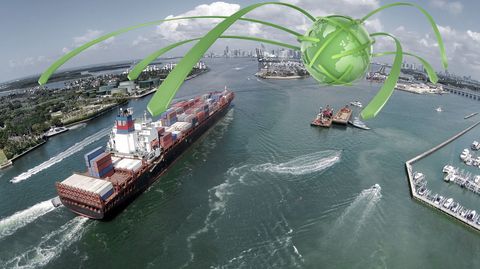Over recent decades, businesses around the world have become accustomed to the idea of global markets becoming progressively more open, with governments and diplomats working concertedly to tackle trade barriers and usher in a new era of uninhibited international commerce.
In the last few years, however, there have been signs that this progress is stalling. With the global economy struggling since the economic crisis of 2008 and a growing perception in many countries that the benefits of globalization have been unevenly distributed, protectionist sentiments are on the rise, and free trade is at risk of falling out of fashion.
As such, policymakers and businesses that remain committed to the principle of tariff-free cross-border trade suddenly have a fight on their hands to rehabilitate the concept in the eyes of the public, in order to prevent the hard-earned gains of many years from being whittled away.
A weakening consensus on free trade
In its 2017 Report Card on International Cooperation, the Council of Councils assigned the progress made on expanding global trade with a grade of D+, down from a C+ in 2015. This represented the steepest decline across the ten issue areas assessed, with the organization noting that popular support for free trade is on the decline in many of the advanced economies that have traditionally championed greater liberalization on this front.
Influential bodies such as the World Trade Organization (WTO), the International Monetary Fund (IMF), the World Bank, the International Labour Organization (ILO) and the Organisation for Economic Co-operation and Development (OECD) have all acknowledged that a growing perception is emerging that free trade is to blame for local unemployment and economic dislocation in some sectors and communities, as cross-border alliances often result in certain jobs moving from one country to another.
At a time when global economic growth is proving sluggish, these concerns are fuelling the protectionist rhetoric espoused by populist politicians such as US president Donald Trump, and may also have played a role in the UK's decision to leave the European Union - both developments that are seen as negative in terms of furthering the cause of international cooperation.
The potential damage
WTO figures indicate that global trade volume growth came to only 1.7 per cent in 2016, representing the slowest increase since the 2008 financial crisis. While part of this is due to slowing global demand and weak economic activity, it was also noted that WTO member countries introduced 182 new trade-restrictive measures last year, while G20 governments implemented almost 350 measures that harmed foreign commercial interests during the first eight months of the year alone.
Meanwhile, the prospects of a number of potentially important mega-regional trade agreements were dealt substantial blows last year, following the move by the US to pull out of the Trans-Pacific Partnership, which would have been the largest preferential trade agreement in history, but is now on the verge of collapse. The Transatlantic Trade and Investment Partnership between the US and Europe is also unlikely to advance in 2017, while even the EU-Canada Comprehensive Economic and Trade Agreement - 2016's biggest free trade achievement - was almost scuppered by opposition from the Belgian region of Wallonia.
Bodies such as the International Chambers of Commerce have raised concerns that this backward slide on free trade may not only dent future economic growth prospects, but could also harm international efforts to develop unified climate change solutions - a matter of global humanitarian importance.
How to restore the reputation of globalization
Although progress on major trade deals such as the Asian Regional Comprehensive Economic Partnership and the African Continental Free Trade Agreement remains possible in 2017, the Council of Councils said it is "pessimistic" about the prospects of a turnaround this year, describing the current populist dissatisfaction and skepticism surrounding free trade as "growing threats to the global trading order".
As such, the WTO, IMF, World Bank, ILO and OECD have all emphasized the importance of ensuring that the reputation of globalization can be rehabilitated, with free trade positioned once again as a solution to economic and social problems, rather than their cause.
Specifically, it was noted that more of an effort needs to be made to ensure that governments combine their trade liberalization efforts with appropriate investments in education, skills development and training for people throughout their working lives, ensuring these individuals are more able to find opportunities even in cases where globalization causes major changes to the structure of their professions.
WTO director-general Roberto Azevedo said: "We need to recognize that many people out there hold a negative view about globalization and trade. We need to work hard to make sure that the benefits of trade are more widely held."






